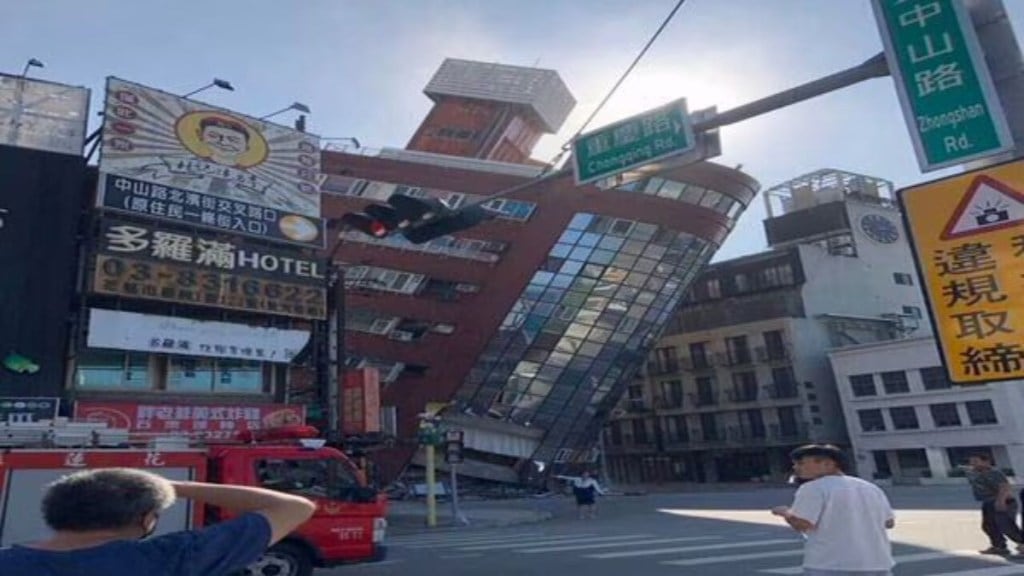The massive earthquake in Taiwan has again sparked concerns about chip shortage in select pockets. Just months after talks around global shortage of semiconductors had started to abet with supply-chain glitches being addressed and improved predictive demand forecast enabling better production schedules, the flurry around the same seems to be returning. But initial reports indicate there may not be much to worry as of now as Taiwan slowly returns to normalcy.
On Wednesday, Taiwan was hit by a 7.4 magnitude earthquake, the most powerful in at least 25 years, and this, analysts said, is likely to tighten supply of tech components such as display panels and semiconductors. However, semiconductor manufacturers have reportedly announced that they have restored operations at their facilities.
As reported by Focus Taiwan, Taiwan Semiconductor Manufacturing Co (TSMC) said late Wednesday that more than 70 per cent of its chip manufacturing equipment had resumed production after a period of suspension earlier in the day due the earthquake. The world’s largest contract chipmaker had halted some of its production lines at the science parks in Taiwan when the quake hit at 7:58 am on Wednesday.
As per the company statement reported by Focus Taiwan, some areas of TSMC’s plant in Hsinchu were immediately evacuated, but the employees later returned to their workstations after the safety of the facility had been confirmed. It also stated that some of the equipment at certain TSMC plants had been damaged during the quake, disrupting production lines while none of its key equipment like its extreme ultraviolet lithography (EUV) machines were damaged. A full assessment was being carried out and efforts were being made to restore the fabs to full capacity, TSMC said. TSMC is one of the world’s largest chipmakers and supplies to companies like Apple and Nvidia.
The intensity of the earthquake on Taiwan’s 7-level scale was recorded at 5 at the Hsinchu, Longtan, and Jhunan science parks, while in the Taichung and Tainan science parks it was 4, it had stated.
Nvidia, as per a Reuters report, said that it had consulted with its manufacturing partners and the firm does not expect supply chain disruptions from the earthquake.
Shipment delays, pricing pressure in sight?
Taiwan plays an important role in the global chip supply chain and manufacturers in the island have been working towards hardening their factories against earthquakes; many even use automatic shutdown systems to minimise damage to their production and tools, analysts told Reuters. The report further added that while most of their facilities are not close to the earthquake’s epicenter, many of the firms had evacuated some of their manufacturing plants and shut down some facilities for inspections.
TSMC’s Tainan operations for advanced process nodes, such as 4/5nm and 3nm, were temporarily suspended, the company had informed. In addition, the extreme ultraviolet (EUV) lithography equipment crucial for these advanced nodes was halted at the site for a period of 8 to 15 hours.
According to Reuters report, Barclays analysts stated that some highly sophisticated semiconductor fabs need to operate seamlessly 24/7 in a vacuum state for several weeks and the halts would disrupt the process, pushing up pricing pressure in the sector. This, the analysts added, could spillover to cause a “short-term hiccup” to electronics manufacturing in economies focused on upstream products, such as Japan and Korea, as well as economies focused on downstream products, such as China and Vietnam. It further reported that lower inventory levels among customers could allow Taiwanese and Korean chipmakers to raise prices.
According to research firm TrendForce, shipments of television panels are expected to be affected as manufacturers have already been operating at near full capacity globally to meet solid demand, and as the earthquake was likely to tighten supplies. It said that TV panel prices were projected to continue rising into April, while maintaining that the longer-term effect of the earthquake would be limited.
